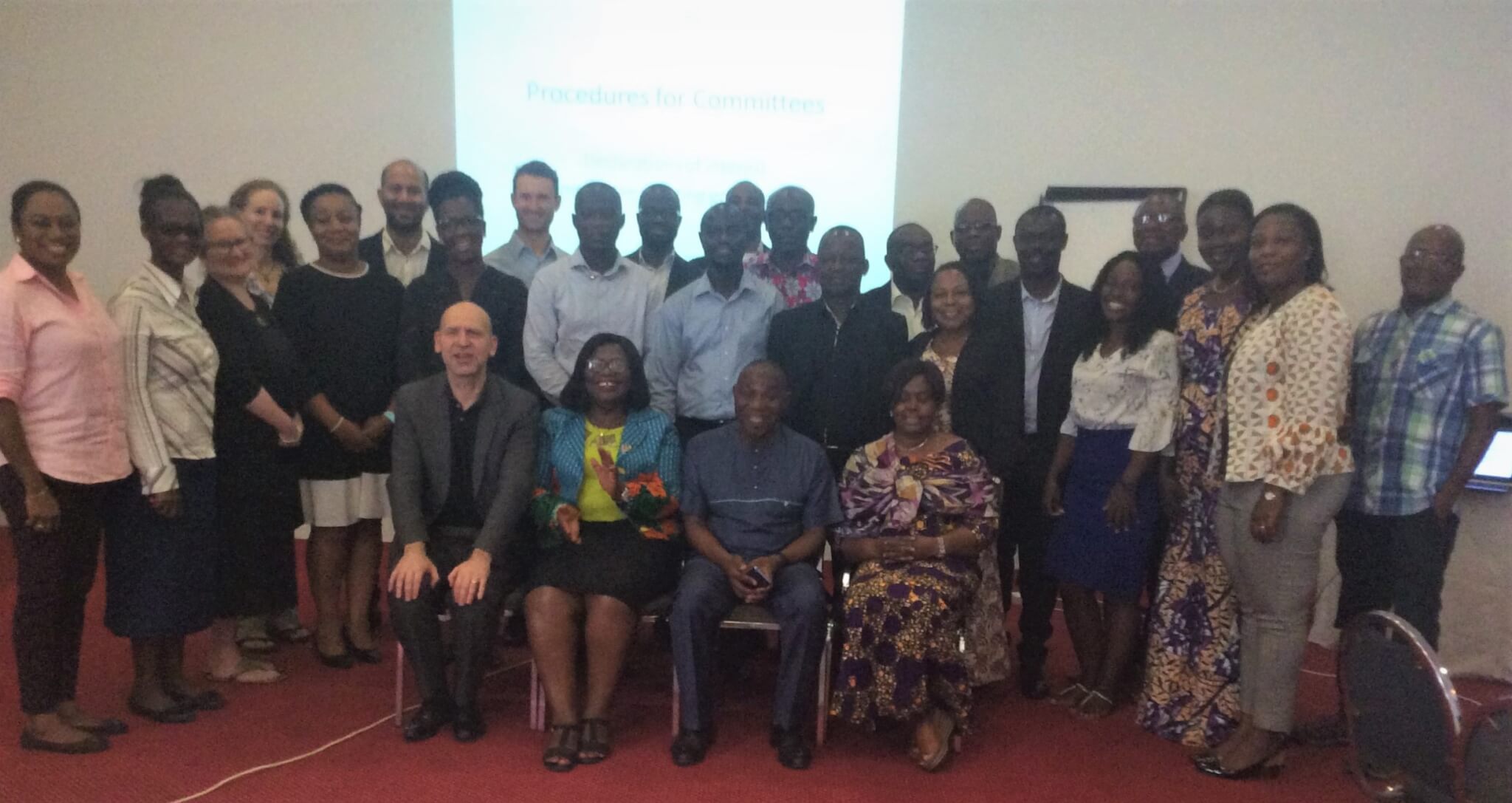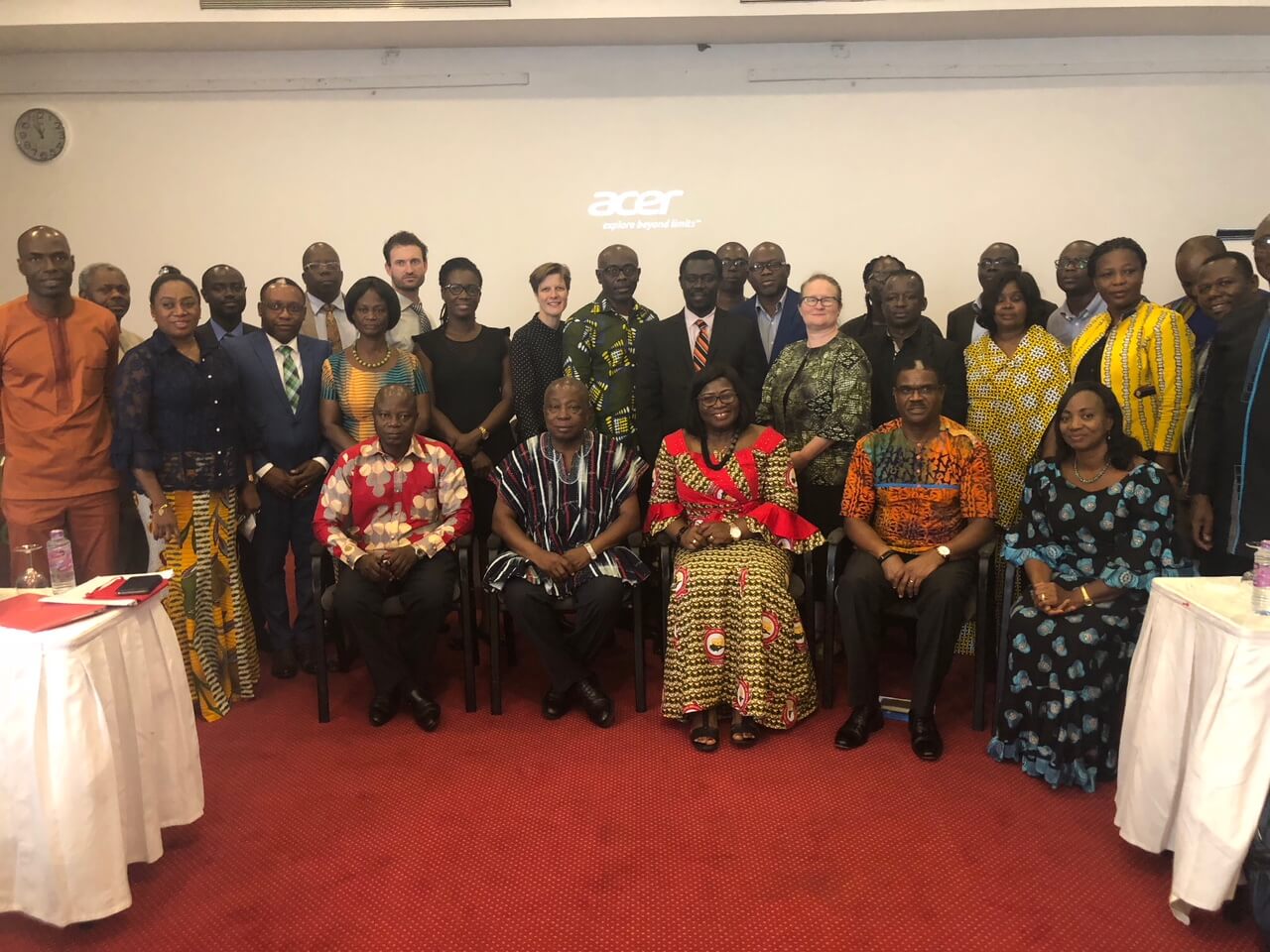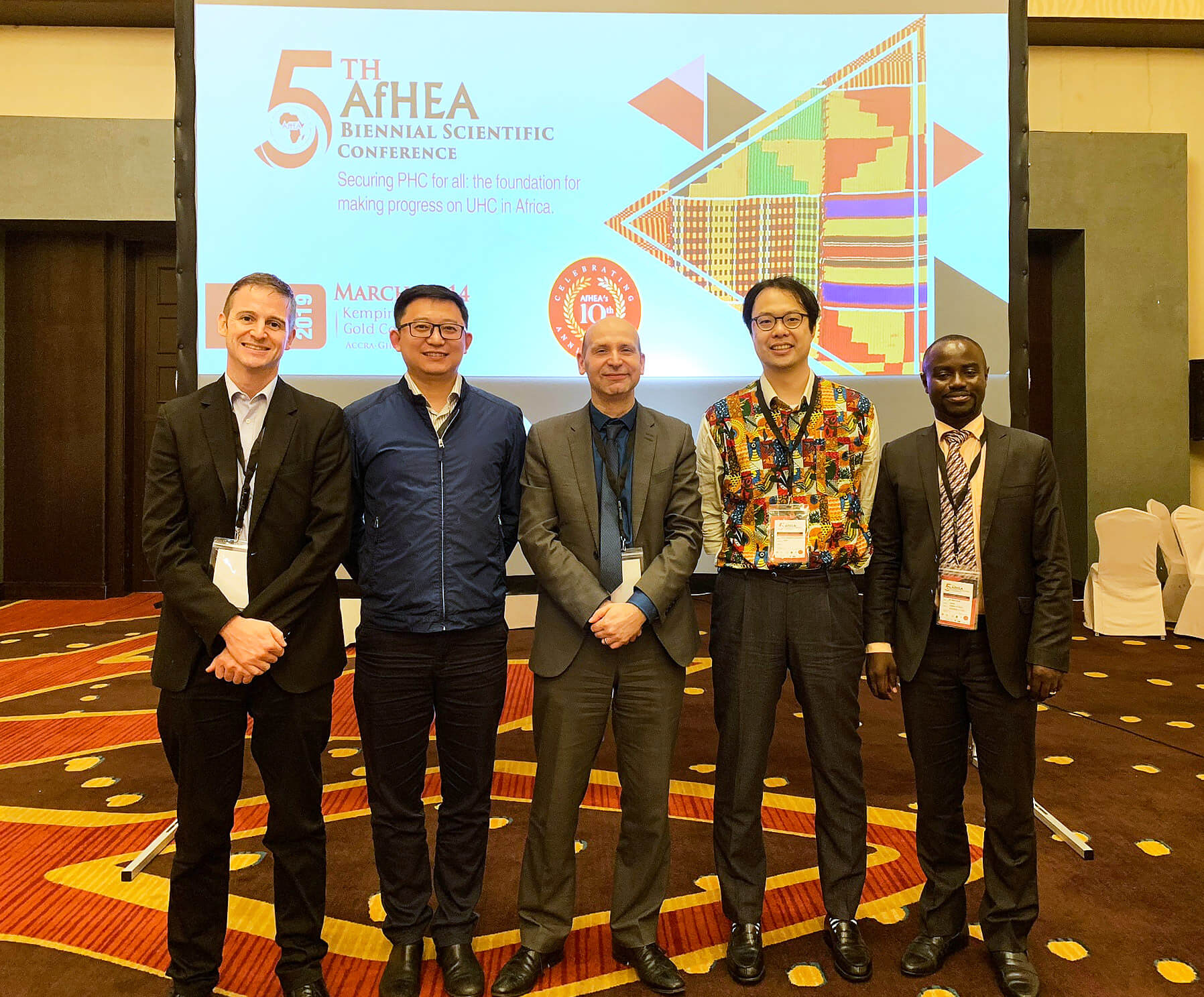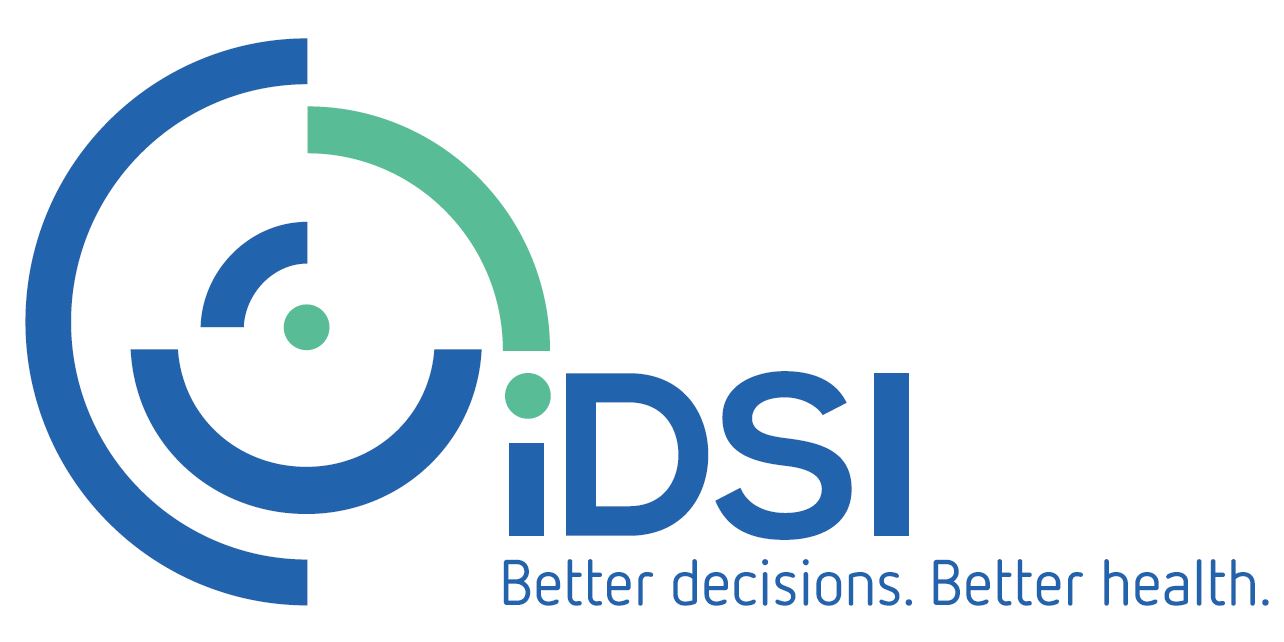Ghana
- iDSI has been building strong partnerships in Ghana for over 10 years. As the first Sub-Saharan African nation to introduce a tax-funded National Health Insurance Scheme (NHIS) in 2003, Ghana is committed to achieving universal health coverage (UHC) by 2030. To enable this vision, iDSI has continued collaborations with governmental, clinical and academic partners in-country to strengthen evidence-based decision making in healthcare for Ghana’s population of 30 million.
Our Impact
iDSI has:
Convened groundbreaking HTA policy forum for over 100 African participants in Accra
Brought together the Technical Working Group on HTA to inform NHIS
Developed Ghana’s first national economic evaluation on hypertension management, informing price negotiation and procurement
Our work focuses on providing direct technical assistance and capacity building for HTA to support government decision-making capacity as Ghana moves “beyond aid”, and to ensure the long-term financial sustainability of the National Health Insurance Scheme. In 2018, the Norwegian Institute of Public Health, joined the iDSI network to further support Ghanaian partners in implementing the government’s long-term vision for HTA.
Improving the quality and efficiency of healthcare services in Ghana through Health Technology Assessment
Supporting next steps for HTA institutionalisation
Ghana has embarked on a programme to initiate and institutionalise Health Technology Assessment (HTA) to inform policy making, priority setting for health interventions, reimbursement, pricing of pharmaceuticals and other health technologies. To support this goal of HTA institutionalisation, in 2019 the Minister of Health inaugurated the HTA Steering Committee, Technical Working Group and Secretariat to oversee the development of HTA under the auspices of the Ghana Ministry of Health. The membership of the Steering Committee is cross agency, with representation from the most relevant agencies, for example, the Ministry of Health, The National Health Insurance Authority, The Ghana Health Service and the Ministry of Finance, to name a few.
In 2021, the Ministry of Health finalised its strategic plan for HTA, whose primary aim is to strengthen the science and practice of HTA in support of evidence-based decisions for improved health in Ghana (1). The specific objectives of the strategy are to:
· Establish country structures required to institutionalize HTA in Ghana in line with country policy direction
· Strengthen the science and practice of HTA in Ghana in order to produce quality evidence, informed effective decisions and efficient practice based on agreeable standards for conduction, dissemination and use of HTA
· Provide support for and deploy evidence-based priority setting in policy prioritization, selection of medicines and health technologies, reimbursements, pricing, resource allocation and procurement; with initial emphasis on health care outcomes, cost and reimbursements.
Ongoing activities:
Capacity assessment and tailored capacity development for HTA
– NIPH developed a survey instrument to assess the (technical) skills conduct an HTA, such as, information retrieval, clinical evidence synthesis and health economics. The Ghana HTA TWG assessment was completed in March 2021 following ethical clearance from the Ghana Health Service Ethics Review Committee.
HTA on Diabetes management (led by Imperial/LSHTM)
– Understanding current practice of managing diabetes in Ghana
– Benchmarking to cross-examine key aspects of findings with international best practice
– Scoping for de-novo interventions and modelling likely health economic impact
HTA on childhood cancers (led by NIPH)
– Assess the impact of the extension of the current NHIS list of cancer medicines to cover childhood cancers
Impact
The study was presented by iDSI representatives at the Ghana National Health Summit in 2017. Results included evidence-informed formulated policy scenarios as a means for achieving cost effective management of hypertension for Ghanaian policy makers. As a result, the Government now has the information and bargaining power to negotiate down drug prices on hypertensive drugs across the board, by a conservative estimate of 10%. This in turn could lead to estimated cost savings for hypertensive drugs of at least GHS 60m (US$12.5m). If the cost savings were subsequently reinvested into prescribing the most cost effective antihypertensive drugs for otherwise untreated patients, this could lead to an additional 53,422 disability-adjusted life years (DALYs) averted. In 2018 the Ghanaian government signed an Aide Memoire cementing the role of HTA in optimising drug procurement and supply chains for UHC, reflecting discussions and conclusions from the 2018 National Health Summit and containing commitments of health partners towards providing quality healthcare for Ghanaians. The study also resulted in a strategic plan for HTA institutionalisation and a National Medicines Policy in Ghana, which promoted the responsible use of medicines by healthcare providers and consumers and reaffirmed the government’s commitment towards UHC and the role that HTA plays in ensuring control over national budgets and optimal resource allocation.
Key reads
- Chalkidou K, Lord J and Gad M. Improving the quality and efficiency of healthcare services in Ghana through HTA [version 1; not peer reviewed]. F1000Research 2018, 7:364 (document) (https://doi.org/10.7490/f1000research.1115326.1)
- Hollingworth S and Gad M. Health technology assessment case study: Ghana [version 1; not peer reviewed]. F1000Research 2018, 7:979 (slides) (https://doi.org/10.7490/f1000research.1115745.1)
- Supporting the Development of Evidence-Informed Policy Options: An Economic Evaluation of Hypertension Management in Ghana Gad, Mohamed et al. Value in Health, Volume 23, Issue 2, 171 – 179 (https://doi.org/10.1016/j.jval.2019.09.2749)
Hypertension management in Ghana
iDSI core partner, the Global Health and Development Group at Imperial College London collaborated with University of Southampton, academia and government in Ghana to produce an HTA study, modelling different policy scenarios for the cost-effective management of hypertension under the current National Health Insurance Scheme (NHIS). These included representatives from the Ministry of Health, National Health Insurance Authority, University of Ghana, and Kwame Nkrumah University of Science and Technology.
The study included economic evaluation and budget impact analysis of main classes of anti-hypertensive medicines currently used for uncomplicated, essential hypertension in Ghana.
Impact of hypertension HTA
- The study was presented by iDSI representatives at the Ghana National Health Summit in 2017. Results included evidence-informed formulated policy scenarios as a means for achieving cost effective management of hypertension for Ghanaian policy makers. See more details on impact of study on policy making for cost-saving and health maximising scenarios in Ghana here.
- In 2018 the Ghanaian government signed an Aide Memoire cementing the role of HTA in optimising drug procurement and supply chains for UHC, reflecting discussions and conclusions from the 2018 National Health Summit and containing commitments of health partners towards providing quality healthcare for Ghanaians.
- The study also resulted in a strategic plan for HTA institutionalisation and a National Medicines Policy in Ghana, which promoted the responsible use of medicines by healthcare providers and consumers and reaffirmed the government’s commitment towards UHC and the role that HTA plays in ensuring control over national budgets and optimal resource allocation.
Setting Priorities Fairly: Sustainable policies for effective resource allocation decisions
Impact
The event was hosted by the Ministry of Health Ghana and endorsed by the Honorable Minister for Health, Mr Kwaku Agyemang-Manu. By leveraging the collective inputs from a great mix of delegates with a vast collection of knowledge, the event builds on the momentum within Ghana on the institutionalisation of HTA within the broader health system.
iDSI and HTAi anticipate the ideas and recommendations that stem from the event will further incite partnerships, development, innovation. More details of the event can be found here
Aligning global and national stakeholders to support HTA Institutionalisation in Ghana
In 2018, colleagues from the Ministry of Health, Ghanaian universities (Kwame Nkrumah University of Science and Technology and University of Ghana), the Global Fund for AIDS, TB and Malaria, and iDSI (Global Health and Development Group; Norwegian Institute of Public Health, NIPH) discussed how to work together to implement the government’s vision for embedding HTA into decision-making within the wider health system.
Impact
- What became apparent from the discussions was the need to build institutions which move the HTA process from involving ad-hoc project specific activities led by a Technical Working Group, to an arrangement involving a standing committee with an associated secretariat and analytical support provided by the Ministry of Health and universities. This is the wish of the President who recommended that HTA moves into legislation alongside tackling antimicrobial resistance and rational medicines use.
- iDSI in collaboration with international partners has supported the development & launch of Ghana HTA strategy and launch of HTA structures comprising a high level steering committee, a technical working group, and a HTA secretariat. We are continuing discussions with Ghanaian counterparts to scope out and help them realise the next steps through capacity-building and advising on institutional set-up for HTA.

Ghana’s HTA agenda and UHC, what difference could HTA make?
16.01
Ghana’s Minister of Health launches the National HTA Steering Committee and calls for HTA institutionalisation in the country
14.10
5th AfHEA Biennial Scientific Conference – Securing PHC for all: the foundation for making progress on UHC in Africa
11.03